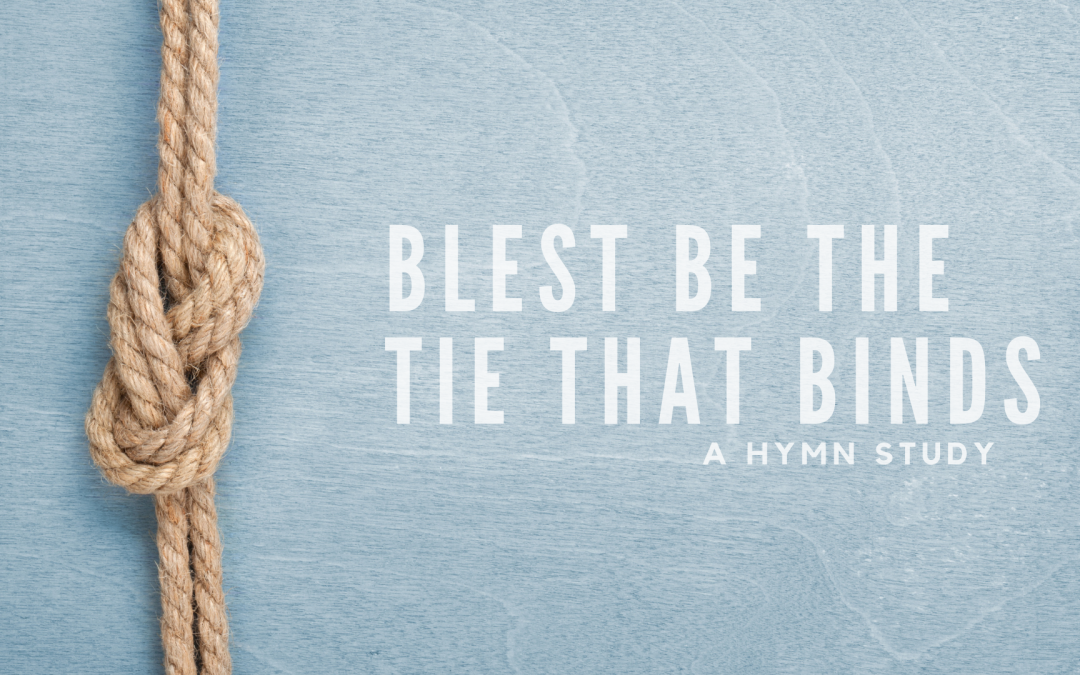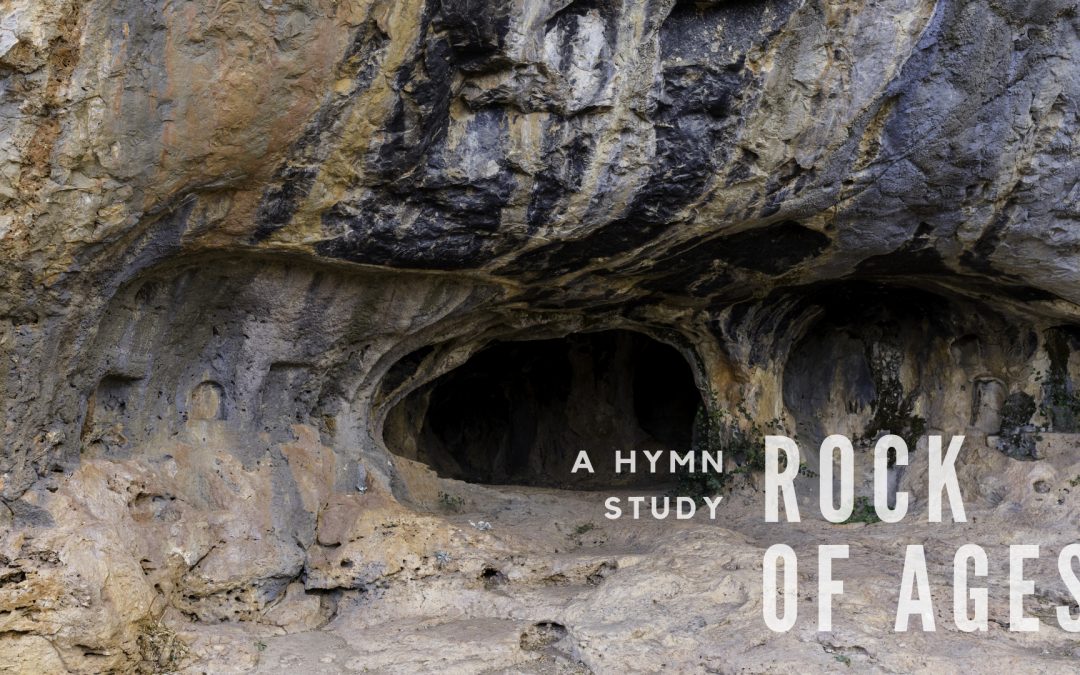
Blest Be The Tie That Binds: A Hymn Study
Though this old standard is most often used as a closing song, it is much more. Published by
John Fawcett in 1792 with a collection of other songs, it is believed, however, to have been
written about 1772. For nine years Fawcett had been preaching for two small congregations in
rural England, composed primarily of farmers and shepherds. He was offered, and initially
accepted an invitation to work in a large London church. However, after packing many of his
family’s goods, he refused to leave his beloved brethren. Though his present salary was
meager, hardly enough to provide for his own family, he could not leave those making up the
congregations whom he loved. Though this story is never told on his own writings, it is believed
that Blest Be the Tie That Binds was written shortly after his decision to stay.
Some words to consider:
1. Kindred—similar nature or character
2. Ardent—devoted, zealous, passionate
3. Asunder—torn into parts, separated from each other
Verse One
We as Christians are bound together like no other group of people in the world. No school
spirit, no civic club, not political party, not business partnership…nothing can match the
closeness we should feel, for we are bound by the love of Christ, and in Him we have full joy in
fellowship with Him. “That which we have seen and heard declare we unto you, that ye also
may have fellowship with us: and truly our fellowship is with the Father, and with his Son Jesus
Christ. And these things write we unto you, that your joy may be full,” I John 1:3-4. Regardless
of the differences we might have in worldly matters, we share ‘kindred minds’ that Jesus is the
ultimate authority (All power is given unto me in heaven and in earth,” Matthew 28:18), and it
is by Him that we do all things, II Timothy 3:16-17.
Verse Two
When we offer prayer to God, publicly or privately, they should be heart-felt, passionate
request (“We pour our ardent prayers”), not merely the repetition of ‘holy’ sounding phrases.
In this song we remind ourselves that there are areas in which we can and should pray.
1. “Our fears”. David, in Psalm 23:4, reminds himself that “I will fear no evil, for Thou art
with me.”
2. “Our hopes”, the things for which we are waiting with eager expectation. “For the grace
of God that bringeth salvation hath appeared to all men, teaching us that, denying
ungodliness and worldly lusts, we should live soberly, righteously, and godly, in this
present world; Looking for that blessed hope, and the glorious appearing of the great
god and our Savior Jesus Christ; Who gave himself for us, that he might redeem us from
all iniquity, and purify unto himself a peculiar people, zealous of good works,” Titus2:11-
14. See also Titus 3:5-7, and I Thessalonians 5:8-9.
3. “Our aims” should be the aims of our LORD and Savior, namely, to bring salvation to all
men, ‘For the Son if man is come to seek and to save that which is lost,” Luke 11:10. It
was also understood by many as the purpose of the apostles, “There men are the
servants of the most high God, which show unto us the way of salvation,” Acts 16:17b.
4. “Our comforts and our cares.” I urge you to use your concordance and examine the
words pray and prayer; look up the references to remind yourself of things for which we
should pray. Here are just a few. Jesus instructed us to pray for physical needs, Matthew
6:11. Pray for deliverance from temptation, Matthew 2:41; for your enemies, Matthew
6:28; for those who teach and preach the gospel, Luke 10:2; for the strengthening of our
faith, Luke 22:32; for the salvation of others, Romans 10:1 and Colossians 4:3; for
forgiveness of our sins, Acts 8:22; for our Christian brethren, Acts 12:5 and John 17:20;
for whatever your cares may be, Philippians 4:6 and Mark 11:24.
Verse Three
This special bond we have should indeed draw us together. IF we truly consider ourselves to be
children of God, we are siblings, and siblings care for each other. We share problems that
others cannot understand, and we can help each other through tough times in areas both
personal and spiritual. Who better understands our struggles in this life and who likely give
better advice than those who realize out dependence on, and our foundation in the Word of
God than fellow Christians? If you do not have a friend in Christ, with whom you can talk about
your deepest feelings or in times of extreme distress, you are missing one of the great blessings
in Christ on this earth.
Verse Four
Many things separate us in this life. Our jobs may cause us to leave one place for another,
children move away from their parents, campers and counselors may weep when camp is over;
we can be geographically divided for various reasons. Regardless of the occasion, sorrow
usually accompanies a separation of this manner. Even more painful is the death of loved ones,
for we have no means of contact. But in every separation, we long for the day when we can
spend eternity together in Heaven with all of God’s children.

